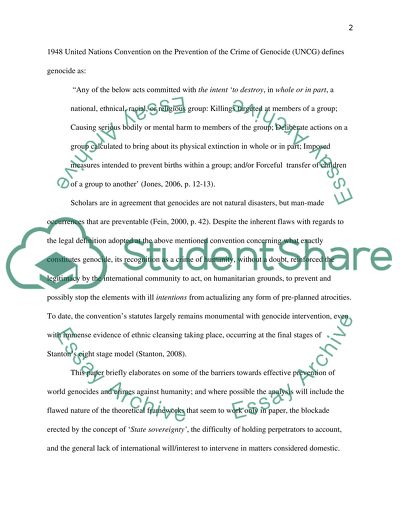Cite this document
(“What barriers are there to the effective prevention of genocide and Essay - 1”, n.d.)
Retrieved from https://studentshare.org/history/1477751-what-barriers-are-there-to-the-effective
Retrieved from https://studentshare.org/history/1477751-what-barriers-are-there-to-the-effective
(What Barriers Are There to the Effective Prevention of Genocide and Essay - 1)
https://studentshare.org/history/1477751-what-barriers-are-there-to-the-effective.
https://studentshare.org/history/1477751-what-barriers-are-there-to-the-effective.
“What Barriers Are There to the Effective Prevention of Genocide and Essay - 1”, n.d. https://studentshare.org/history/1477751-what-barriers-are-there-to-the-effective.


